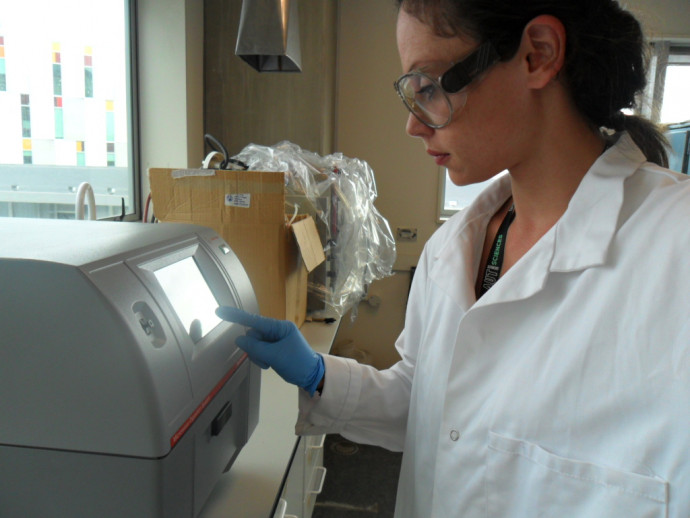Papatoetoe High School – Sophia Yakich

2016 | Environmental chemistry – exploration and analysis
School: Papatoetoe High School
Host: Auckland University of Technology (AUT)
Region: Auckland
The science team at Papatoetoe High School is committed to improving the performance and achievement outcomes of its students by encouraging them to be inquisitive through a variety of hands-on activities that cover the five Science capabilities. As a consequence the Nature of Science strand will be more explicitly taught to the junior students. The team is committed to meeting with parents to inform them of the programme that they will be teaching and also the rationale behind it. By doing so, the teachers hope to improve students’ scientific literacy.
During the last seven years of teaching Sophia has always had the desire to make science in her classroom more related to everyday life. Sophia has spent the last six months working alongside her host organisation Auckland University of Technology (AUT), Science faculty in the city campus. With mentoring and guidance from Professor John Robertson, she has worked on developing her foundation of knowledge and understanding of a whole range of environmental analytical techniques.
Her individual project was inorganic and organic analyses of soil from Hobson Bay in Auckland. Sophia has collected soil samples, which were dried and analysed using the use of an ICP-AES. This analysis meant that Sophia had to make standard solutions for testing inorganic heavy metals in the soil and use a microwave digester to break down the soil samples. Once the solutions were analysed she had to gain background information from the Auckland City Council to be able to compare and contrast the concentrations to the legal limitations of heavy metals in soil. The organic analysis of soil was carried out using a Soxhelet extraction method and rotary evaporation for the samples to be ready for analysis. She has learned how to use the GC and the GC-MS in order to identify the organic impurities present in the soil samples. Sophia hopes to use the new gained knowledge of sample collection, handling, analysis and data with her students especially with the senior Chemistry classes.
Sophia has been very fortunate to have this exciting experience, which has benefited her own scientific skills and understanding. Moreover, she has been able to observe and be part of what science looks like in an applied field. This new learned knowledge of various different analytical techniques such as the Science Electron Microscope (SEM), Infrared Spectroscopy (IR), Raman, Nuclear Magnetic Resonance (NMR) and UV-Vis will be something she can take back to the classroom to help students become “confident, connected and actively involved life-long learners” (NZ Curriculum).
Having spent time with enthusiastic scientists that collaborate together and are constantly critiquing methods and findings, she will be able to take the Nature of Science approach from real life scenarios back into the class. While the curriculum workshops and the Leadership Course have been of significant value, Sophia feels that the most valuable experience has come from interacting with scientists. Professor Robertson has displayed great leadership skills through the methods of setting tasks, asking questions and critiquing. Sophia hopes that this experience will not only allow her to improve the scientific knowledge of her students but also to give them an insight into the skills that all scientists require.
